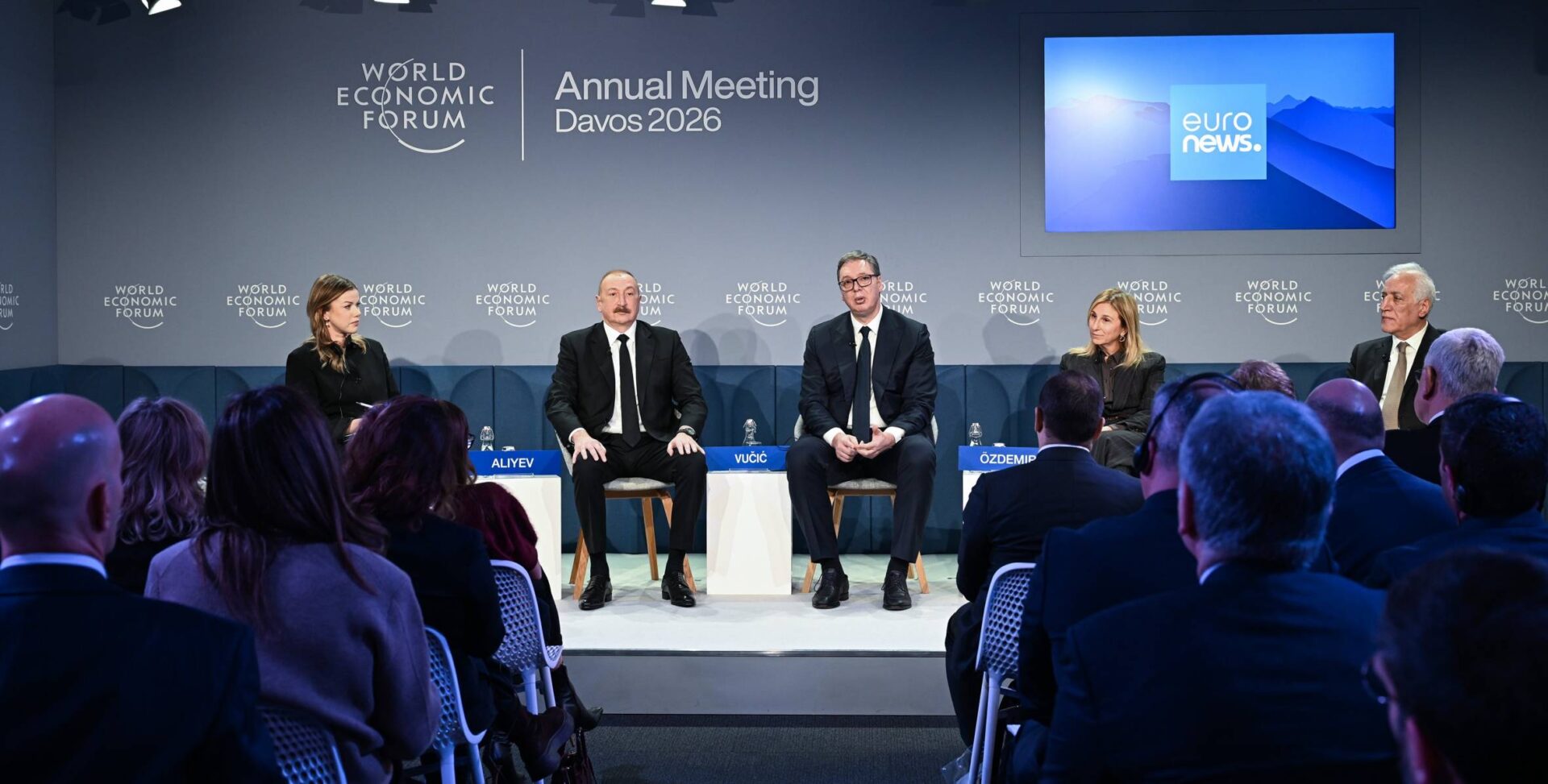RUSSIAN REGIONAL PROTESTS SPREAD TO INGUSHETIA, BASHKORTOSTAN
RUSSIAN REGIONAL PROTESTS SPREAD TO INGUSHETIA, BASHKORTOSTAN
Regional protests continue to spread across Russia. Late last year, the residents of Karachaevo-Cherkessia, a region in the western portion of the North Caucasus, demanded the resignation of Mustafa Batdyev, the local president. After a week-long standoff, the opposition dropped their demands in return for promises of a legitimate criminal trial for Batdyev’s son-in-law, who has been accused of the criminal violence that originally provoked the unrest.
Residents of North Ossetia also want their president, Alexander Dzasokhov, to vacate his post. Dzasokhov was accused of incompetence following the disastrous end to the Beslan school hostage crisis in September 2004.
Earlier this year, protests took place in the Volga republic of Bashkortostan. The left-wing and right-wing opposition parties united against the clan of president Murtaza Rakhimov. The Coordination Council of the United Opposition of Bashkortostan even includes Russian and Tatar nationalists from, respectively, the Rus party and the Tatar Nationwide Center. A total of nine political groups comprise the Coalition, including Yabloko, Communists, a union called “People’s Will,” Rodina, the Russian Party of Pensioners, the Development of Local Self-Rule Foundation, the Union of Tatar Public Organizations, Rus, and the Union of Entrepreneurs of Bashkortostan. The opposition is supported by the local business community and by tycoons such as Nikolai Svetsov. Ramil Bygnov, another famous businessman, is one of the Coalition’s leaders (regnum, March 29).
In an interview with Regnum Press Agency, Bygnov explained that the opposition wanted Rakhimov’s resignation due to his “serious violation of the Russian Constitution, human rights violations in the town of Blagoveshensk [where local police arrested and beat dozens of young men], embezzlement of property and budgetary funds, and the generally poor social and economic conditions in Bashkortostan (regnum, March 29).
On March 26, thousands of people gathered in the center of Ufa, the Bashkir capital, to demand Rakhimov’s resignation. Between 5,000 and 10,000 demonstrators also demanded the restoration of social benefits that had been abolished by the new monetization law. They also demanded higher pensions and wages and the resignation of local Interior Minister Rafail Divaev, said to be responsible for the Blagoveshensk zachistka. They also demanded that Rakhimov’s son return his shares in several oil companies to the state (grani.ru, March 28). Apparently, each faction of the opposition represents an unsatisfied social group with a grudge against the Bashkir president.
The Ufa rally began downtown, in Lenin Square. The demonstrators marched to the Government Palace, only to find it surrounded by 15 buses and 1,000 policemen. Although there had been as many as 10,000 people on the square, only about 2,000 of them marched towards the Palace. Rady Khabirov, head of Rakhimov’s administration, and Alexander Shabrin, secretary of the local Security Council, met with a delegation of the demonstrators who presented them a written list of their demands. Afterwards the protestors dispersed (grani.ru, March 28).
Almost simultaneously, a similar standoff between the opposition and the authorities took place in Ingushetia, a region adjacent to war-torn Chechnya. Murat Zyazikov, president of Ingushetia, is the least popular of all of Russia’s regional leaders. When the Ingush parliament, which is controlled by Zyazikov, refused to discuss the issue of the republic’s administrative borders, the residents’ patience ran out. They want the administrative status of Prigorodny district resolved, as it is currently disputed by neighboring North Ossetia. The fact that Zyazikov, unlike Ruslan Aushev, his predecessor, refused to take Ingush concerns to Moscow enraged the locals. People also blame Zyazikov for corruption and numerous human rights violations. On March 28, the opposition tried to organize a protest rally near the Memorial for Victims of Political Repressions.
A leader of the opposition Akhki-Urt movement said that the rally would be the beginning of the end of the corrupt Zyazikov regime (Ingushetiya.ru, March 25). Sensing the mood of the people, Zyazikov left Ingushetia for Rostov, where he met with Dmitry Kozak, Russian President Vladimir Putin’s envoy to the Southern Federal District (Nezavisimaya gazeta, March 29).
However, the federal authorities were not as easily scared as Zyazikov. Police and military units backed by armored vehicles moved into Ingushetia from North Ossetia and surrounded the Memorial. Boris Arsamakhov, the main leader of the opposition, was detained on his way to the rally (Nezavisimaya gazeta, March 29). Nevertheless, hundreds of people gathered at the intersection near the Memorial and voted for a resolution demanding Zyazikov’s resignation. The crowd then dispersed and went home.
There is now a popular consensus that Kyrgyz-style unrest and revolution could be repeated in Russia. Indeed, the latest events in Bashkortostan and Ingushetia have shown quite clearly that the revolutionary virus was born in Georgia, spread to Ukraine and Kyrgyzstan, and has already begun to infect Russia. However, these events also show that the virus is still too weak to effect a change in Russia, even on the regional level. Protest resolutions and angry speeches alone will hardly scare the Kremlin into changing its domestic policies.


